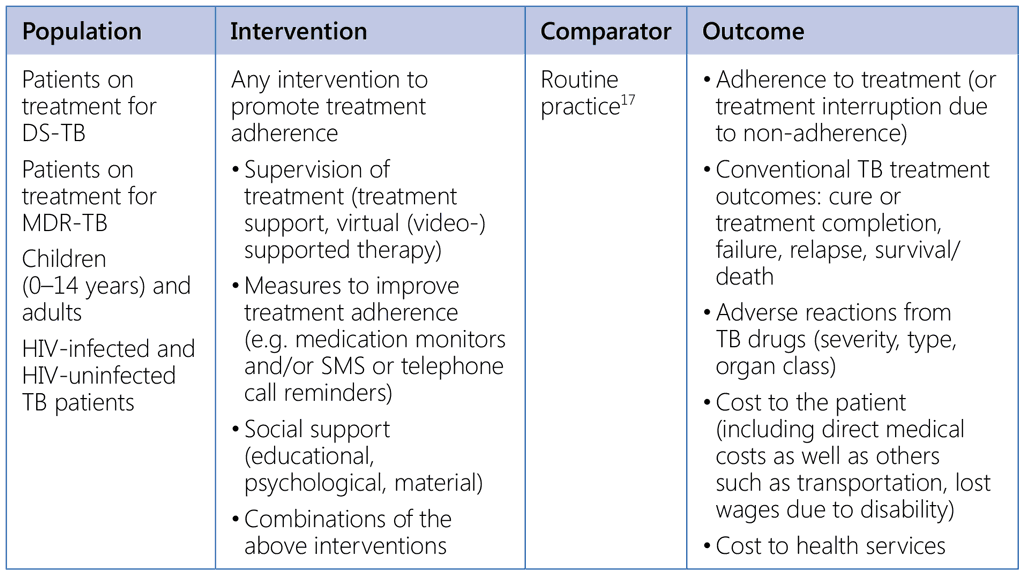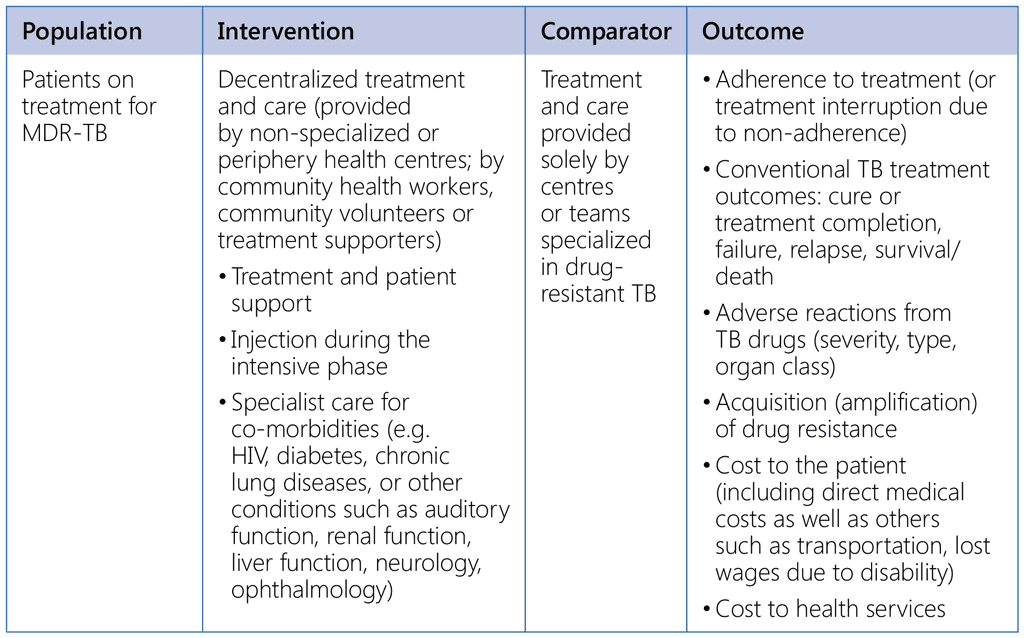Book traversal links for Annex 2. PICO questions
Care and support interventions for all people with TB (Guideline update 2017)
1. In patients with TB, are any interventions to promote adherence to TB treatment more or less likely to lead to the outcomes listed below?

Models of care for people with drug-resistant TB (Guideline updates 2011 and 2017)
2. Among patients with MDR-TB, is ambulatory therapy compared with inpatient treatment, more or less likely to lead to better outcomes?
3. Is decentralized treatment and care for MDR-TB patients more or less likely to lead to the outcomes listed below?

Models of care for children and adolescents (Guideline update 2022)
4. Models of care for TB case detection and TB prevention settings with a prevalence of TB in the general population of 100 per 100 000 or more:
a. In children and adolescents with signs and symptoms of TB, should the decentralization of child and adolescent TB services versus centralized child and adolescent TB services (at referral or tertiary hospital level) be used?
b. In children and adolescents exposed to TB, should the decentralization of child and adolescent TB prevention and care services versus centralized prevention and care services (at referral or tertiary hospital level) be used to increase coverage of TB preventive treatment in eligible children an dolescents?
c. In children and adolescents with signs and symptoms of TB, should family-centred, integrated services versus standard, non-family-centred, non-integrated services be used?
d. In children and adolescents exposed to TB, should family-centred, integrated services versus standard, non-family-centred, non-integrated services be used to increase coverage of TB preventive treatment in eligible children and adolescents?
¹⁷ Routine practice: regular TB drugs pick-up and consultations with physician or other health-care workers are available when necessary; TB treatment is free of charge; essential information/health education in relation to TB treatment is provided
 Feedback
Feedback